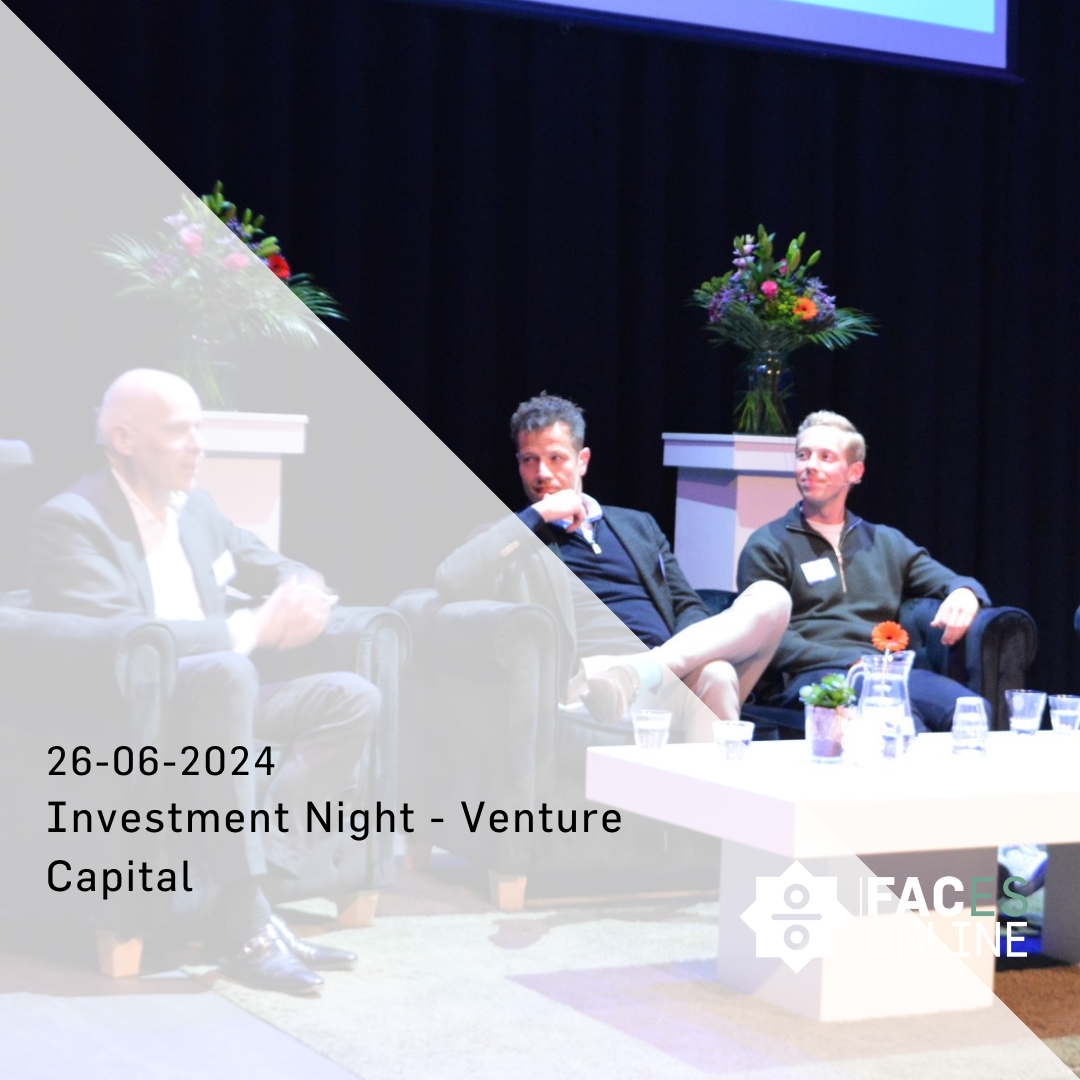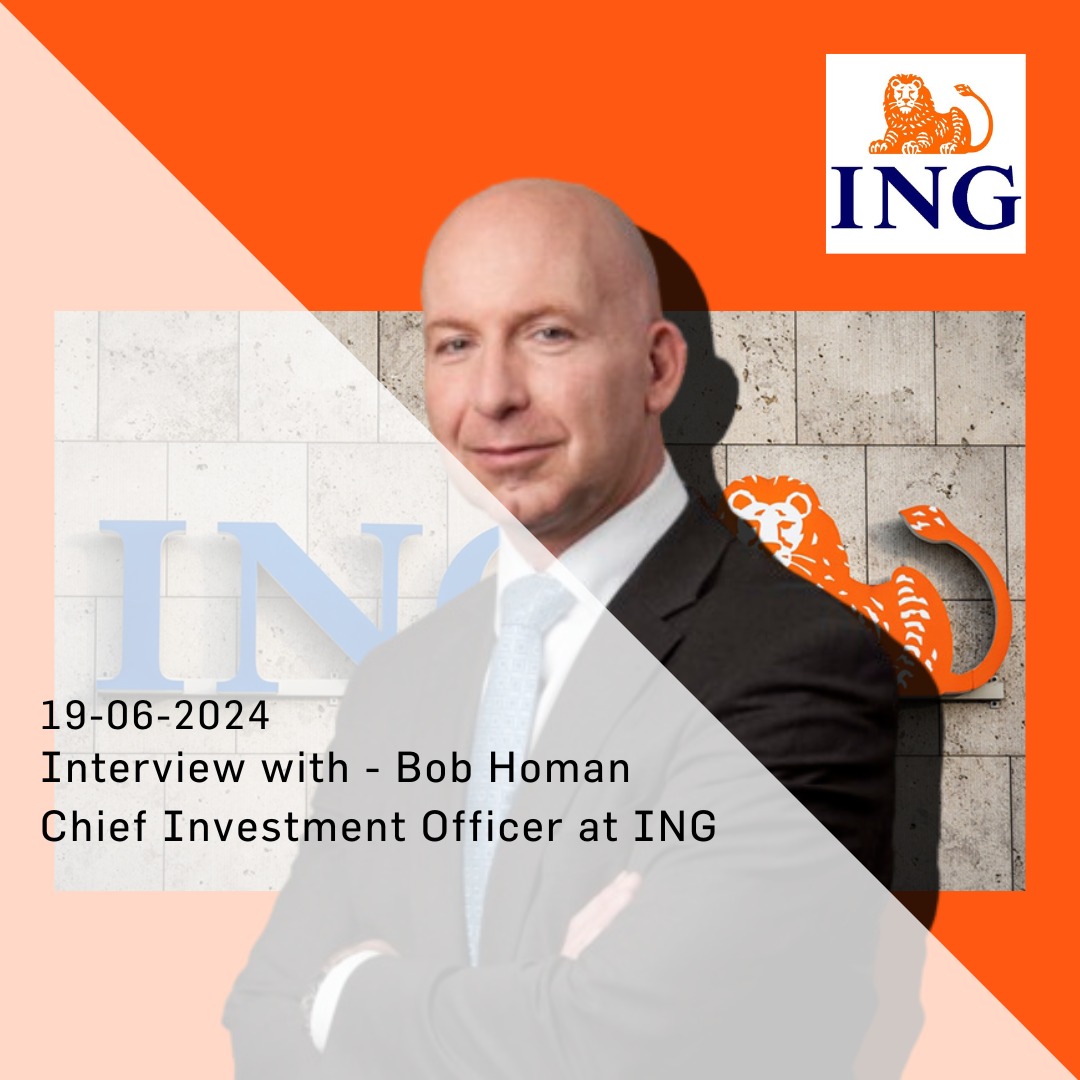Preparation for the eleventh edition of Investment Night began in early September. When we as a committee met for the first time at the beginning of

A deepening interview with dr. Mathijs Bouman. He gives his frank opinions on a variety of topics like the role of central banks, Europe, and several national economies. He explains why central banks are good at suppressing inflation as opposed to stimulating economies. Moreover, he reveals his views on Europe and supports a more centralized banking union. Furthermore, he judges the French, Italian, and German national economies and provides students with some useful tips and tricks.
Can you tell us something about yourself, your studies and your career?
I studied Economics at the University of Amsterdam with specializations in Macroeconomics, International Economics and Economic History. Then I became a researcher in training, again at the UvA, with Rick van der Ploeg and Sweder van Wijnbergen. After four years I have been promoted. Then I became a researcher at the Free University in Amsterdam and at Leiden University. After a year I stopped doing this and I started as journalist at the new weekly economic magazine Elsevier, which was called FEM Business. So I learned a lot of that branch that way, after six years, by accident, I ended up in the editorial. I thought that was less interesting. Then I started working as economist at the Nederlandsche Bank for a few years; instructive, but a bit boring. I had seen it there after two years, and figured out I had to go to work for myself. So I became a freelancer. Later I heard they were looking for someone at RTLZ and I did a screen test.
I did not actually have that job, so then a job interview is usually quite good. That was eventually a golden opportunity, as freelancer with a little media exposure it is much easier. I also write occasionally a book, I give lectures and I am a regular columnist for the Financieel Dagblad and business website Z24.nl.
The U.S. economy is slightly growing again. What do you think about the recent reduction of the stimulus from the Federal Reserve (Fed)?
It is going very slowly. They bought each month for $ 85 billion in government bonds and this is now $ 75 billion. Maybe that during each monthly meeting 10 billion goes off, and then we are done at the end of the year. The extent to which they reduce is extremely careful because they are still stimulating things still and in addition, the interest rate is at zero percent. They try not to make the mistake to reduce the case too fast and too soon. Personally, I wonder if that stimulus was needed anyway. We will spend the next ten years investigating what difference it actually made. There is of course a kind of detour that that excessive monetary economics stimulates, not so much through low interest rates and investment, for example, from cheap money and higher stock prices. Eventually, people feel richer and hopefully they might consume more. The last way that the central bank also really looks like a kind of transmission channel, I’ll find very speculative. You ultimately want it that stock prices more than corporate profits reflect the lack of alternative forms of investment. Now we wait to see if corporate profits and stock prices will catch up or if share prices are now actually rewarded with actual profits. In recent years, this has been mainly cheap money from the Fed and share buyback programs of the companies, but still not real earnings growth. I find it all extremely experimental at this point.
Is it true that you are unsure of the impact of such incentives on the economy?
Yes, it’s very difficult because there are so many things happening at once and it is very difficult to mention this as an experiment in a scientific sense. Bernanke will say, ‘See, we are growing again.’ But you do not know where that can be attributed to; we see that there is a cost involved. Those huge price increases can be dangerous. I did not think we were going to do these things in times of crisis and I think it’s brave of Bernanke. Whether it was wise, I find it hard to say. We will find out.
Aren’t there any bubbles created in the American economy (and therefore European) by the incentives of the Fed?
This may be the case at the exchange and it might be in the housing market in America, but bubbles are difficult to identify. Unfortunately, we can only say retroactively if there was a bubble. Not every price correction is an evidence of a bubble. In case of a bubble people know they are going crazy, but they just think that the madness will last for another day. From rational consideration you can still buy something. It’s been far too expensive, but tomorrow prices rise anyway. Then you can build the same reasoning again tomorrow, so you buy it again. I haven’t seen such a bubble caused by the Fed. I think that the stock market bonds would have been lower if the Fed had not made it unprofitable to invest by keeping interest rates very low. The housing market is also quite dangerous. You see in Europe, mainly in the German, British and French housing a rather odd price rise. In Britain, they perform rather extreme public policies to encourage people buying a house. I did not expect that such increases in houses and stocks were possible at this stage of recovery.
What do you think about the economy of the Eurozone? Is this already in the elevator or are there major factors that prevent recovery?
It all looks better, we’re not going down the drain, but the growth is very low. We are happy with a little bit of growth, even though that growth is at the level of what we used to call a recession. Everything is relative, compared to 2011 it’s been nice that we grow again. You see in some countries that it is clearly going better, as in Spain. You see in France and Italy, where they have not done much, the recession persists. Netherlands is slowly coming a bit out of the debt crisis. We had a much heavier as well once we are very rich, have many pension money and a lot of power is in our house. If the prices of stocks and houses come down, you have as a rich country more problems. A slob in the slums of Rio de Janeiro has no shares and he doesn’t care what the stock market does, but a rich man though. Therefore, we have also had adjustment problems in recent years. The only obstacle I see is lending. It is very difficult at this time to generate credit growth in Europe because banks now have something else on their minds than prolong their balance sheet; who want to just shorten it to meet the capital requirements. The growth is hampered because of the credit crunch (a supply shortage of money, ed.), which is still present.
What do you think of the banking union?
You can’t have the euro without a banking union. That was never possible, and now it appears that it really isn’t in practice. Step one to solve the euro crisis is a banking union. We do not really have a banking union, because a real banking union also requires that you have a common deposit guarantee system. This way you put the joint credit of all Member States in order to strut the creditworthiness of banks. We do not really do this, because ultimately it turns out that each country is still running for its own banks. If a bank has to be saved, there is no good European solution for that. Moreover, part of a real good banking union is that you keep joint monitoring, we have done this in Europe now. Banks should be able to go bankrupt in a gentle way; this has to be regulated at European level. At national level, each bank is ‘too big to fail’ and because of that banks will behave like they are going to be saved anyway. This must be done at European level, but the DGS must also be reduced. With a smaller deposit guarantee scheme you can save multiple banks. The total settlement procedure, what if banks go bankrupt and who will pay should also be done with European money. Letting a bank go bankrupt is more expensive than a bank rescue. The Germans are not willing to do that. Therefore, it is actually called, not a bank but a joint supervised union.
If you look at the economy of the Eurozone, do you think that lowering interest rates by the ECB still has a positive effect on economic growth?
An even lower interest rate does not really matter for investment or consumption. Lowering interest rates has two effects. First, it makes the banks some more profitable. As long as the banks keep the money in the balance, they are healthier, although at the expense of savers and borrowers. But the main reason is that it prevents the appreciation of the euro. We do it basically because the Americans, the British and the Japanese do it too. Otherwise, we are in times of crisis an expensive euro. Central banks can be good economics restrain; so reins tightening so that the interest is increased and you get a recession to get inflation mastered. But pushing on a string, that’s not going so well. Central banks cannot stimulate the economy that good as well.
Increasingly it appears that France is the least performing country regarding the economic development in the Eurozone. What do you think about this and do you provide problems with this in the long term?
There is something about this country that I do not understand as neat Anglo-Saxon economist. If you look at what France has done during the crisis, which is a lot better than the Netherlands. They are able to remain unchanged in GDP before the crisis, while the Netherlands sits under considerable there. So they had it tough the last few years; they have implemented heavy and stupid tax increases. I think they were also allowed to reform much more because it is a wonder that the French economy is still working. The last twenty years we have depreciated France economists very often. For example, they have a strong industry, highly educated population, good institutions, but some problems in the labor market and they are cowardly in their reform choices. I think Italy has worse economy and the Germans are doing it structurally not so much better, they also have their crazy antics. France is a country to watch, but the dramas that are made about it still seem less severe afterwards. In one-way or another, the French economy is average, not too bad.
Do you have specific goals you want to achieve?
Prime Minister of the Netherlands. No, this is okay. I would not mind writing a book about robots and automation. Many jobs will disappear because the robot will take over jobs. It involves the substitution between labor and capital. There are many interesting aspects to this subject. I wait until a robot is invented that is able to write the book, because I do not have time for it.
Do you have any valuable lessons for the students of Tilburg University?
Go to the University of Amsterdam. No, I would tackle every extension of my study. When you graduate quickly, you have learned a little. Also make sure that you are going abroad; I am sorry that I have not done that. For example, if you ask hiring managers what they now look for at a resume, then study is not in the top ten. It involves high grades and what you did besides your studies. If you want to belong to that 1% you have to do more than just being in a committee of your study association. Another tip: go teaching. The best way to study economics is by teaching.
This interview is translated from Dutch to English by the Editorial Board of Asset | Accounting & Finance.





















